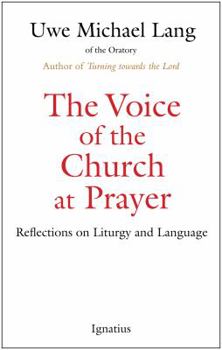The Voice of the Church at Prayer: Reflections on Liturgy and Language
Pope Benedict XVI has made the liturgy a central theme of his pontificate, and he has paid special attention to the vitally important role of language in prayer. This historical and theological study of the changing role of Latin in the Roman Catholic Church sheds light on some of the Holy Father's concerns and some of his recent decisions about the liturgy.
The Fathers of the Second Vatican Council allowed for extended use of the vernacular at Mass, but they maintained that Latin deserved pride of place in the Roman Rite. The outcome, however, was that modern translations of the prayers of the Mass replaced the Latin prayers.
What was the reason for the Council's decision and why is there now a desire for greater use of Latin in Catholic worship? Why have some post-conciliar English translations of the prayers of the Mass been replaced?
Fr. Lang answers these questions by first analyzing the nature of sacred language. He then traces the beginnings of Christian prayer to the Scriptures and the Greek spoken at the time of the apostles. Next he recounts the slow and gradual development of Latin into the sacred language of the Western Church and its continuing use throughout the Middle Ages. Finally, he addresses the rise of modern languages and the ongoing question of whether the participation of the laity at Mass is either helped or hindered by the use of Latin.





